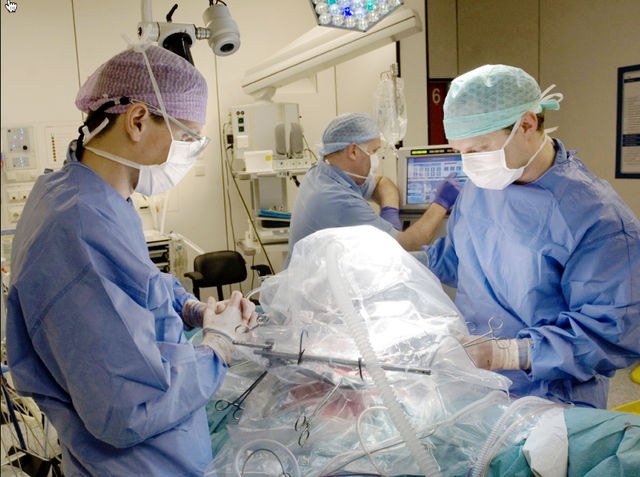All of the organs in the abdominal cavity, such as the stomach, the small and large intestine and the abdominal wall, are covered with a thin layer of cells called the "peritoneum." Sometimes, the peritoneum is invaded with cancer cells, a disease known as "peritoneal cancer."

Since normal chemotherapy is not usually very effective, peritoneal cancer is a life threatening disease. However, several leading hospitals around the world offer a new treatment for some patients with peritoneal cancer that may prolong life expectancy and may even cure some patients.
What is HIPEC?
In a HIPEC procedure, after a surgeon has removed all visible tumor tissue, the abdomen is filled with heated chemotherapy in order to also destroy the non-visible cancer cells. This procedure is called a Heated IntraPeritoneal Chemotherapy, or HIPEC, operation. Treatment using HIPEC can increase the chances of long-term survival or even a complete cure.
The operation typically lasts from between 6 and 16 hours, depending on the amount of cancer cells in the abdomen. Most patients spend for two to three weeks afterwards in the hospital for recovery, but this may be longer in case of complications. The prognosis after the HIPEC treatment varies, and mainly depends on the origin of the tumor and the amount of cancer in the abdomen at the time of diagnosis.
The number of patients with complications has been steadily decreasing in recent decades. Fortunately, as experience of performing HIPEC increases, the number of patients with complications has been steadily decreasing in recent decades.
Who is a candidate for HIPEC?
Not all patients with peritoneal cancer qualify for a HIPEC procedure. This procedure is mostly effective for peritoneal cancer origination from the large intestine and the appendix and for mesothelioma. The general medical condition and age of the patient, the extent of the disease and the presence of metastases in liver or lungs must be taken into consideration. The decision to undergo a HIPEC procedure must be taken in close discussion with an experienced medical specialist. This requires careful review of all available medical information and in some cases may involve additional imaging or laparoscopic evaluation of the abdomen.
A timely and extensive case assessment is essential to make a HIPEC procedure safe and effective. This is one of Premier Healthcare Germany's areas of expertise. If a HIPEC is feasible, Premier Healthcare Germany will collaborate with the most experienced HIPEC centers to ensure the best possible quality of patient care.
Contact Premier Healthcare to discuss the opportunities for this treatment.
